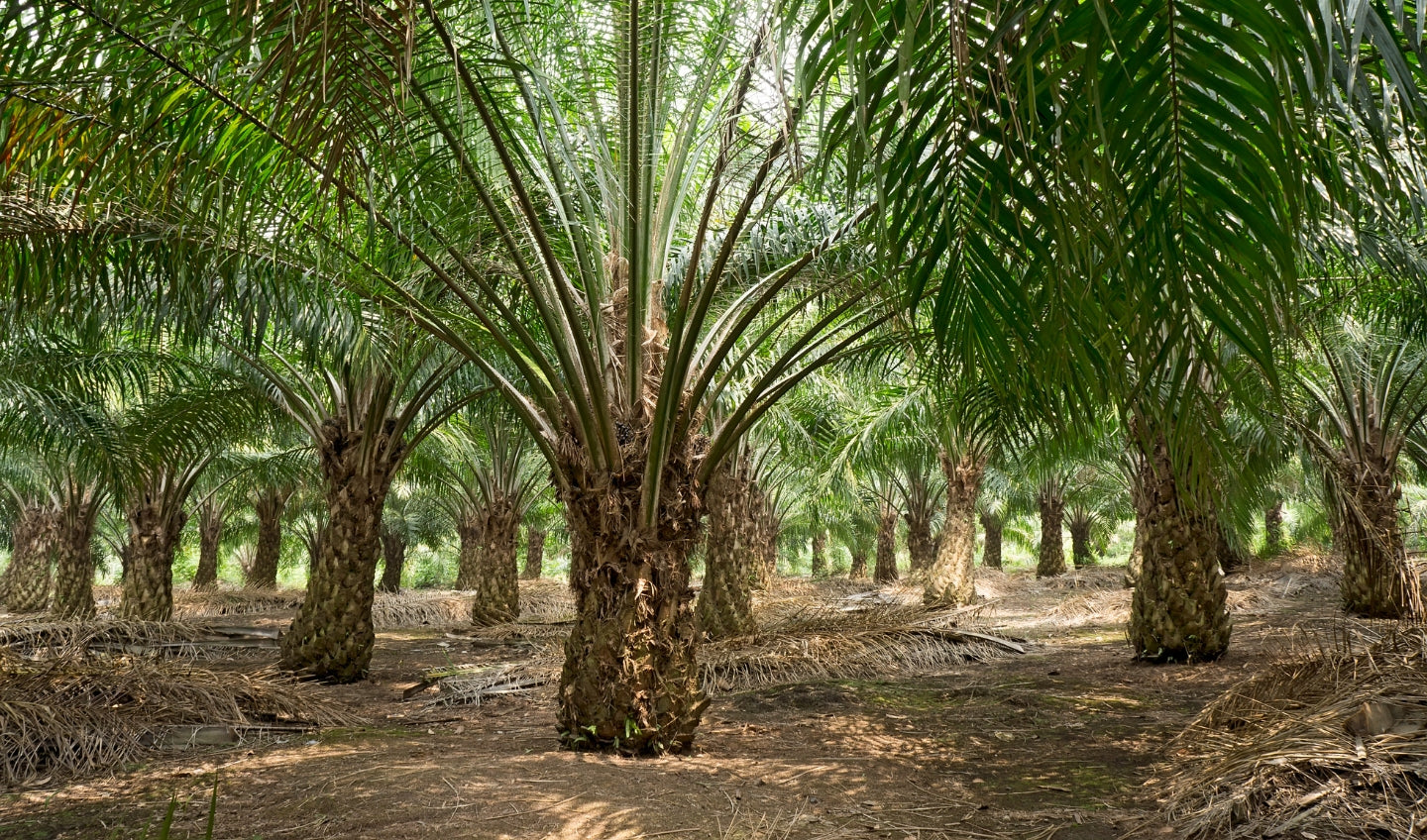Do you find palm oil to be a concerning ingredient in baby formula? We all know that palm oil is at the center of many debates and has a rather controversial standing.
So, with its mixed reputation, parents often wonder about its role in their little one's diet. With palm oil being a common ingredient in many formula brands' recipes, it's time to separate fact from fiction.
Join us on this enlightening journey as we unravel the mysteries, explore the benefits, and shed light on any potential drawbacks of palm olein oil in supplemental milk formulas.
Get ready to put your worries to rest and gain a deeper understanding of this ingredient as we answer the question, is palm oil safe? Let's embark deeper into this eye-opening topic together!
Contents
Palm Oil Explained: The Facts You Gotta Know
Palm oil or palm olein oil plays a vital role in infant formulas supporting babies' growth and development. But there's more to it than meets the eye. So, without further ado, let's dive into the pros and cons of this common infant formula ingredient!
Nutritional Benefits of Palm Oil in Infant Formulas
Alongside other vegetable oils, palm is often used in infant formulas to make sure babies get the fatty acids they need for proper growth and development. Fatty acids are involved in supporting babies' brain, eye, and nervous system development. These essential nutrients contribute to cognitive function, vision, and efficient nerve transmission!
Fatty acids also help strengthen the immune system and provide a concentrated source of energy for infants. As their bodies cannot produce enough fatty acids, it's important for babies to receive them through their diet, including from baby formulas that are specially created to provide these essential nutrients.

The key component of palm oil that supports infant nutrition is known as palmitic acid. Interestingly enough, the palmitic acid in palm oil accounts for roughly a quarter of the fatty acid content of human breast milk! Additionally, adding palm oil to infant formula can increase the amount of vitamins A, K, and E and beta-carotene in your baby's diet.
What are the Drawbacks of Palm Oil in Infant Formula?
It's important to have a comprehensive understanding of both the advantages and disadvantages of this ingredient to make informed decisions for your little one's well-being. Now that we've explored the benefits of palm olein oil let's delve into the other side of the equation and examine the potential drawbacks.

Reduced Calcium Absorption
Palm oil in formula has raised concerns due to its potential impact on calcium absorption in babies. A portion of the palmitic acid in palm oil can remain unabsorbed in the intestines, binding with calcium and hindering its absorption.
Reduced calcium absorption refers to the body's ability to take in less calcium from the food we consume. Lower bone mineralization means that the bones are not getting enough minerals like calcium to grow and strengthen properly.
The use of palm oil in infant formula can affect this relationship because it contains a type of fat called palmitic acid. Studies suggest that high levels of palmitic acid in the diet may interfere with calcium absorption, leading to lower bone mineralization.
It's worth noting that the palmitic acid naturally present in breast milk is more easily absorbed. This difference in palmitic acid absorption has led to debates surrounding the use of palm oil in formula and its potential impact on calcium intake for little ones.
While the absorption of palmitic acid may not be as efficient as in breast milk, it's important to note that formula-fed babies won't necessarily experience a calcium deficit.
Manufacturers are well aware of the potential drawbacks of palm oil palmitic acid and often address this concern by supplementing baby formula with extra calcium. This ensures that your baby receives the necessary fat and calcium for their growth and development, providing peace of mind for parents!
Short Term Constipation
Some parents are also wary of using palm olein-containing formula because this ingredient is linked to occasional bouts of constipation in babies.
That being said, research shows that the effects of palm oil on stool consistency are typically short-term and aren't enough to suggest that palm olein should be avoided. Ingredients aside, young babies are prone to constipation from a variety of factors due to their immature digestive system but the issue rarely persists.
Reduced Fat Absorption
It's important to note that palm oil in baby formula has been associated with reduced fat absorption. Since fat plays a crucial role in providing energy for babies, this finding may raise concerns.
Research suggests that baby formulas containing palm oil may result in approximately 10% less fat absorption compared to those without it.
Importantly, baby formula generally contains a higher fat content than human milk, ensuring that even with a slight reduction in fat absorption, your little one will still receive an adequate and healthy amount of this essential nutrient.
Next, let's take a look at what the experts have to say about palm oil and how this impacts infants fed formula!
Expert Opinions From Infant Nutrition Experts and Health Organizations
Before we dive in deeper, we want to remind you that the safety of palm oil as an ingredient in baby formula is well-established by regulatory authorities such as the FDA in America and EFSA in Europe. That being said, there are still potential drawbacks to consider.

The American Academy of Pediatrics acknowledges that palm oil, specifically the palmitic acid component, has been associated with reduced bone mineralization in infants when used in significant amounts in baby formulas. This is because, as we explained above, palmitic acid can sometimes interfere with the absorption of calcium.
The World Health Organization advises that the overall intake of fatty acids should not exceed 1% of the total energy in a baby's diet. Fortunately, formula manufacturers adhere to these guidelines and typically do not exceed the recommended amount of vegetable oils and fatty acids in baby formula.
While there are potential drawbacks when it comes to fat and calcium absorption, and it's crucial to ensure that your baby doesn't consume excessive amounts of fatty acids, it does not mean that palm oil must be completely avoided.
Overall, infant health experts and medical bodies agree that palm oil is safe for babies. By choosing reputable brands and following appropriate feeding guidelines, you can provide your little one with a safe and balanced diet with or without palm olein oil!
Alternatives to Palm Olein Containing Formula
We understand that you might have concerns about palm oil and may be seeking alternatives. Fortunately, there are other plant and vegetable oils available to mimic the fatty acid profile of human breast milk and meet your baby's nutritional needs!
So if you would prefer to steer clear of palm olein oil, you may want to check these vegetable oils out instead:

• Coconut oil 🥥 - This oil is easy to digest and even has antimicrobial properties, making coconut oil a good choice for the baby's immune system. It also contains lauric acid, which can be found in breast milk.
• Soy oil 🌱 -Soy oil contains several fatty acids essential for the baby's healthy development. It also has a lower saturated fat content than palm.
• Sunflower oil 🌻 -This palm oil alternative contains linoleic acid, which can help support your baby's brain development and overall well-being. Just like soy oil, sunflower oil is lower in saturated fats than palm oil, making it a healthy option.
• Safflower oil 🌼 -High oleic safflower oil has a fatty acid profile that is similar to human milk. It contains plenty of oleic acid, making this palm oil substitute beneficial for your baby's heart health and brain development.
You'll be happy to know that several of the formula brands we carry here at Baby Milk Bar don't use palm oil, so you can easily find an alternative for your baby's formula if you would prefer one without palm oil!
Our palm oil-free brands include Jovie, Nannycare, Kendamil, Holle Goat (Dutch and German versions), and Bebe M.
Frequently Asked Questions About Palm Oil in Formula
We understand that palm oil can be a topic of interest and concern for many parents. In this section, we aim to provide you with answers to commonly asked questions about palm oil in the context of baby formula and infant nutrition!
• Can I find a high-quality formula without palm oil?
Absolutely! When it comes to choosing baby formula without palm oil, there are excellent European brands that prioritize alternative ingredients. Some noteworthy options include Jovie, Nannycare, Kendamil, Holle Goat (Dutch and German versions), and Bebe M. You can shop all of these brands and more here at Baby Milk Bar!
• How do I know if a formula contains palm oil?
Carefully scan the ingredients list on the packaging of your baby's formula and search for the terms palm oil, palm olein, or palmitic acid. Palm oil can also be listed as palmate or cetyl palmitate.
Notably palm oil is more commonly found in a skim milk-based formula rather than formulas based on whole milk. This is because whole milk has a more robust fatty acid profile closer to human milk, allowing for reduced reliance on vegetable oils.
• Is palm oil in formula different from the palm oil used in other products?
Usually, there isn't much difference between palm oil used in baby formulas and other foods.
• Should I avoid palm oil in formula for environmental reasons?
If you're passionate about making environmentally friendly choices, it's worth considering alternatives to foods and infant formulas that contain palm oil. Palm oil production has been associated with deforestation and pollution, making it a less sustainable option for our planet.
However, it's important to note that much of the formula containing palm oil that we offer on our shop comes from sustainable or RSPO-certified sources. By choosing these options, you can still provide your little one with palmitic acid while minimizing the environmental impact caused by unsustainable palm olein oil production.
Wrapping Up: Making an Informed Decision
Palm oil, like any other vegetable oil, has its pros and cons, and it's important for parents to be aware of these when making decisions for their little ones. While palm oil is not inherently bad or dangerous, it's crucial to understand its benefits andpotential drawbacks.
If you're using supplemental milk formulas alongside breast milk or exclusively feeding your baby with formula, it's recommended to review the ingredients and seek guidance from a pediatrician. They can provide personalized advice and specific solutions to meet your baby's unique needs!
Feeling overwhelmed by the wide range of infant formula options available? Let us help. At Baby Milk Bar, we're dedicated to quality and transparency. We partner with reputable European brands and offer a diverse selection of baby formulas that do not contain palm olein.
Visit Baby Milk Bar today to discover the perfect formula for your little angel! Whether you choose a formula containing palm oil or explore our alternative options, rest assured that every formula we provide adheres to the highest standards of production and quality!
Breast milk is the best source of nutrition for babies. Before altering your baby's diet or feeding routine, consult your healthcare provider for personalized recommendations. The information in this article is strictly for informational purposes and is not a substitute for medical advice.





